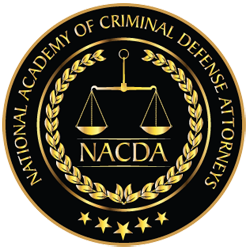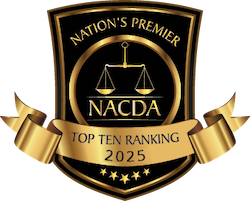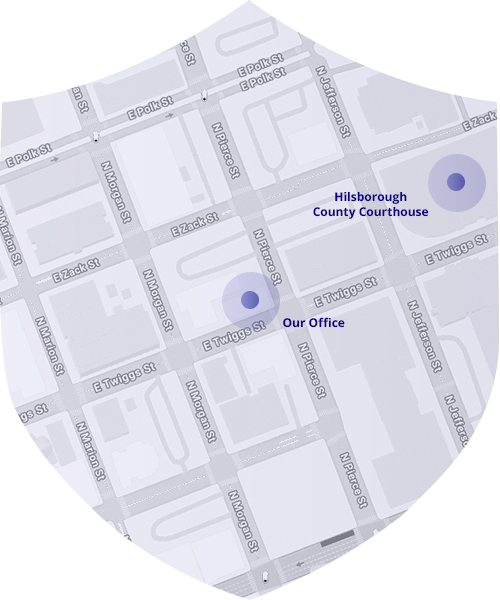- Free Consultation 24/7: (813) 727-7159 Tap Here To Call Us
Privileged Communication in Florida Child Abuse Cases: What You Need to Know

Florida law creates critical exceptions to confidentiality when a child’s welfare is at stake—therefore, understanding these rules is essential to your defense
| ⚠ CRITICAL: MOST PRIVILEGES DO NOT APPLY IN CHILD ABUSE CASES If you believe your conversations with doctors, therapists, or even your spouse remain protected from disclosure in a child abuse investigation—you may be wrong. Specifically, Florida Statute § 39.204 eliminates most communication privileges when a child’s welfare is at stake. As a result, only attorney-client and clergy privileges remain protected. |
Is Your Conversation Really Private?
When facing serious allegations like child abuse, neglect, or abandonment in Tampa, Florida, many people assume their private conversations remain protected. For example, you might believe your communications with doctors, therapists, or even your spouse stay confidential under the law.
However, Florida law on privileged communication holds a critical surprise: these privileges often do not apply if a child’s welfare is at stake. Therefore, understanding this exception becomes vital if you face a Florida child abuse or neglect case in Tampa, Hillsborough County, or the surrounding Tampa Bay area.
| FLORIDA STATUTE § 39.204 – ABROGATION OF PRIVILEGE Section 39.204 of the Florida Statutes explicitly states that the husband-wife privilege, physician-patient privilege, and psychotherapist-patient privilege do not apply in any proceeding concerning abuse, abandonment, or neglect of a child. In other words, the law prioritizes a child’s safety over confidentiality. |
Which Privileges Apply in Florida Child Abuse Cases?
Understanding which communications remain protected—and which do not—proves essential for anyone facing child abuse allegations in Florida. Consequently, review the following breakdown carefully:
| Type of Privilege | Protected? | Legal Authority |
| Attorney-Client | ✓ YES – Protected | Exempt under § 39.204 |
| Clergy-Penitent | ✓ YES – Protected | § 90.505 may apply |
| Husband-Wife | ✗ NO – Abrogated | § 39.204 |
| Physician-Patient | ✗ NO – Abrogated | § 39.204 |
| Psychotherapist-Patient | ✗ NO – Abrogated | § 39.204 |
| Mental Health Counselor | ✗ NO – Abrogated | § 39.204 |
| YOUR ATTORNEY-CLIENT PRIVILEGE REMAINS FULLY PROTECTED Importantly, Florida Statute § 39.204 specifically exempts conversations between you and your attorney. Therefore, you can and should speak openly with your criminal defense attorney about any alleged past child abuse or neglect. Indeed, that privileged communication remains fully protected, and no court can force disclosure. |
Florida Courts Emphasize Child Safety Over Privilege
Florida courts consistently reinforce that child protection takes priority over confidentiality. For instance, in Hill v. State, 846 So. 2d 1208 (Fla. 5th DCA 2003), the court affirmed that investigating and reporting child abuse allegations outweighs other legal privileges.
| CASE LAW: HILL V. STATE, 846 SO. 2D 1208 (FLA. 5TH DCA 2003) Holding: Florida’s public policy of safeguarding children from harm outweighs an individual’s right to privileged communication in child abuse proceedings. Significance: As a result, professionals usually bound by confidentiality—such as medical providers and mental health counselors—must provide testimony or evidence in child abuse investigations. Consequently, their typical privileged communication rules do not apply. |
Mandatory Reporters in Florida: A Duty to Disclose
Additionally, Florida law designates certain individuals as “mandatory reporters” under Florida Statute § 39.201. These professionals must report suspected child abuse or neglect by law. Furthermore, failure to report can result in criminal penalties. Because the duty to report takes priority, it overrides any claim of privileged communication for these professionals (except attorney-client and clergy).
| Mandatory Reporter Category | Privilege Status |
| Medical professionals (doctors, nurses) | Must report; privilege abrogated |
| Mental health counselors, therapists | Must report; privilege abrogated |
| Social workers | Must report; privilege abrogated |
| Teachers, school staff, daycare personnel | Must report; no privilege applies |
| Law enforcement officers | Must report; no privilege applies |
| Clergy members | Must report suspected abuse; however, spiritual counsel privilege under § 90.505 may still protect certain communications from court disclosure |
| Your attorney | Full privilege protected; not a mandatory reporter for past conduct |
| ⚠ WHAT THIS MEANS FOR YOU If you face child abuse or neglect accusations in the Tampa area, do not assume sensitive conversations with therapists, doctors, or spouses remain private. In fact, courts can—and often do—require disclosure of this information. As a result, many defendants feel shocked when prosecutors use statements they believed were confidential. |
Why Understanding Privilege Proves Critical to Your Defense
Because the law abrogates privilege in child abuse cases, several defense challenges emerge that require experienced legal representation:
- First, statements you made to doctors, therapists, or counselors can become prosecution evidence
- Second, courts can compel conversations with your spouse as testimony
- Third, prosecutors may subpoena your medical and mental health records
- Finally, mandatory reporters may have already disclosed information before you knew charges were coming
For these reasons, you need an experienced Tampa child abuse defense attorney who deeply understands Florida’s complex child welfare and privileged communication laws. Moreover, the right attorney can evaluate what information may face disclosure, challenge improper use of privileged communications, and protect your rights throughout the investigation and court proceedings.
Frequently Asked Questions: Privileged Communication in Florida Child Abuse Cases
Can my therapist testify against me in a child abuse case?
Yes. Because Florida Statute § 39.204 eliminates the psychotherapist-patient privilege in child abuse proceedings, courts can compel your therapist to testify and produce records about what you disclosed during sessions.
Does spousal privilege protect my conversations in a child abuse case?
No. The law abrogates the husband-wife privilege under § 39.204. Therefore, courts can compel private conversations between spouses as testimony in child abuse investigations and court proceedings.
Can I speak freely with my attorney about child abuse allegations?
Yes. Importantly, attorney-client privilege remains fully protected in Florida child abuse cases. Therefore, you can and should speak openly with your criminal defense attorney about the allegations. Indeed, no court can force this communication to become public.
What is a mandatory reporter in Florida?
Under Florida Statute § 39.201, mandatory reporters include professionals who must report suspected child abuse or neglect to authorities by law. Specifically, this group includes doctors, nurses, therapists, teachers, social workers, and law enforcement. Furthermore, failure to report constitutes a crime.
Does clergy-penitent privilege remain protected in child abuse cases?
Although clergy must report suspected abuse, Florida Statute § 90.505 may still protect confidential communications made to a clergy member acting as a spiritual advisor. However, the interplay between mandatory reporting and clergy privilege involves complexity and requires careful legal analysis.
Can prosecutors use my medical records against me in a child abuse case?
Yes. Because the law abrogates the physician-patient privilege under § 39.204, prosecutors can subpoena medical records related to the child—or even your own treatment records—and use them as evidence in child abuse proceedings.
What should I do if someone accuses me of child abuse in Florida?
First and foremost, contact an experienced criminal defense attorney immediately. Additionally, do not speak to investigators, DCF, or law enforcement without legal counsel present. Most importantly, do not discuss the allegations with anyone except your attorney, because other conversations may lack protection.
Why does Florida law eliminate these privileges in child abuse cases?
Essentially, Florida courts and the legislature determined that protecting children from abuse outweighs maintaining confidentiality in these specific circumstances. In other words, the rationale holds that crucial information about child welfare should not remain hidden behind privilege claims.
| Facing Child Abuse Allegations? Speak With the Only Person Who Cannot Testify Against You. Call (813) 727-7159 for a Confidential Consultation The Brancato Law Firm, P.A. 620 E. Twiggs Street, Suite 205, Tampa, FL 33602 Serving Hillsborough, Pinellas, and Pasco Counties |
| ABOUT ATTORNEY ROCKY BRANCATO With over 25 years of criminal defense experience, Tampa attorney Rocky Brancato has defended complex child abuse cases and understands the nuances of privileged communication in Florida child abuse law. As former Chief Operations Officer of the Hillsborough County Public Defender’s Office with experience in an elite sex crimes and child abuse unit, he knows precisely how prosecutors build these cases—and consequently, how to protect your rights. |

















